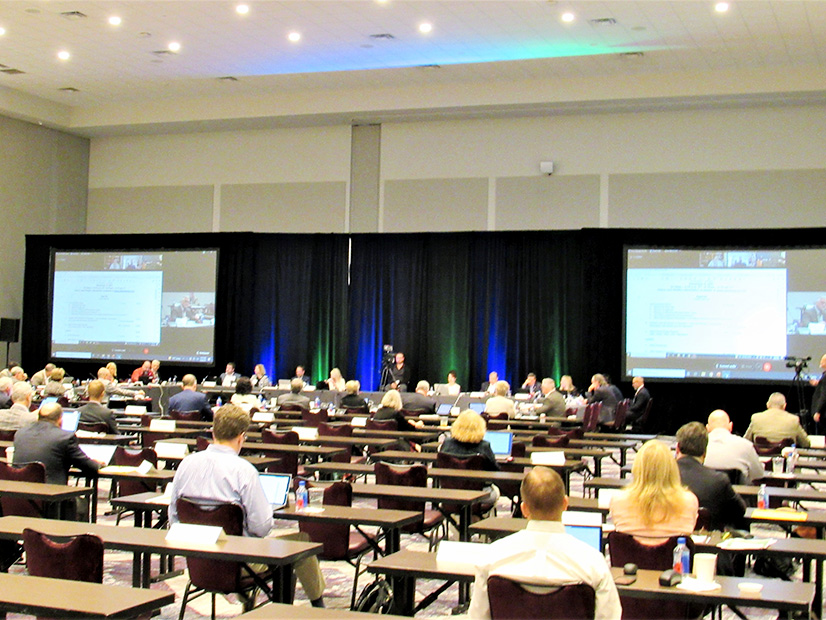
[EDITOR’S NOTE: The headline for this story previously implied that MISO itself desired a change in the meeting schedule.]
Weeks into its new scaled-back stakeholder meeting schedule, MISO will re-examine its effectiveness by holding a stakeholder workshop later this month.
The Feb. 22 workshop on MISO’s stakeholder process and engagement comes as several committee chairs have spoken out against the new schedule.
“I hear your concerns. I am taking notes,” Bob Kuzman, the RTO’s head of stakeholder relations, said during a Wednesday Advisory Committee teleconference. “We understand there are hiccups, and there are going to be more hiccups.”
Kuzman said he was collecting opinions during the meeting to take back to MISO leadership.
The grid operator announced late last year a reduced meeting schedule consisting of eight meetings apiece per year for its main stakeholder committees. The committees include the Market Subcommittee, Resource Adequacy Subcommittee, Reliability Subcommittee, Planning Advisory Committee and Regional Expansion Criteria and Benefits Working Group, which makes cost-allocation decisions. (See MISO Modifies Stakeholder Meeting Schedule.)
Client relations staff framed the new meeting schedule as giving its subject-matter experts a meaningful pause between meetings in the transition to in-person meetings after two years of pandemic-induced isolation. The RTO eventually committed to only scheduling meetings through May and held its first series of face-to-face meetings last month. (See MISO Hosts First In-person Meetings amid Pandemic.)
Clean Grid Alliance’s Natalie McIntire suggested MISO use the February workshop to work together with stakeholders, rather than to impose changes.
“This really needs to shift to a collaborative effort with stakeholders instead of dictating changes, hearing complaints and then making adjustments,” she said.
“Stakeholders feel much better when they’re involved in the decision-making process,” Resource Adequacy Subcommittee Chair Chris Plante agreed.
“There are concerns about how the stakeholder process is evolving,” Market Subcommittee Chair Megan Wisersky said. “MISO now controls the stakeholder process without stakeholder discussion or consent. … The concern is the stakeholder process no longer belongs to the stakeholders.”
Wisersky said the lighter meeting frequency has nudged some agenda items into a “post-only” format, where information is posted on the MISO website but not discussed with stakeholders.
Multiple stakeholders also cast doubt that the RTO can accomplish its 2022 goals — finalizing participation models for storage and distributed resources; establishing dynamic line ratings; recommending long-range transmission projects; and possibly creating a seasonal capacity auction — with fewer meetings.
Planning Advisory Committee Chair Cynthia Crane said she noticed that meetings are shorter and “cursory,” with staff making fewer feedback requests of its stakeholders.
“I would encourage MISO to act very swiftly in making improvements,” she said.



